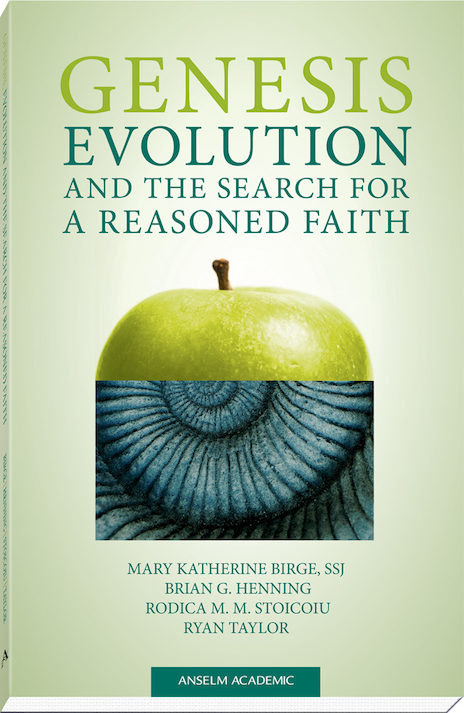Genesis, Evolution, and the Search for a Reasoned Faith
By Mary Katherine Birge, SSJ, PhD, Brian G. Henning, PhD, Rodica M. M. Stoicoiu, PhD and Ryan Taylor, PhD
Overview
Designed to Help College Students Understand that Theology and Science Are Not Mutually Exclusive
Collaborators Mary Katherine Birge, Rodica Stoicoiu, Ryan Taylor, and Brian G. Henning explore in four illuminating chapters the rich and complex history of the biblical creation accounts, the nature of science investigation, the ethical and philosophical significance of the theory of evolution, and the all-enveloping role of evolutionary theory in the deepening and broadening of faith. In the process, the authors expand readers' understanding of the compatibility between religion and science. Readers will learn that they need not choose religion over science or faith over reason, and that evolution does not threaten but rather enriches faith.
Through more than 20 accessible and comprehensive case studies and examples, the authors make it clear to readers that regardless of what religious or nonreligious background they come from—regardless of their religious knowledge and experiences—they can discover that science and religion are not enemies, but are companions in the search for truth. The fresh and fascinating Genesis, Evolution, and the Search for a Reasoned Faith explores both the nature of science and religion and the intelligent and intimate conversation that is necessary in the search for truth.
Product Details
Copyright: Feb. 1, 2011
Format: Paperbound
Size: 5.375 x 8.25
Length: 148 pages
Item number: 7031
ISBN: 978-0-88489-755-2
ISBN-10: 0-88489-755-9
Editorial Reviews
Episcopal New Yorker, Summer, 2011, Vol. 87, No. 2
In the first of the book's four chapters, Mary Katherine Birge considers the question of biblical factual inerrancy. The main point here—elucidated by a fairly close reading of the texts—is that the different authors of the stories of creation contained in Genesis never believed or intended what they wrote to be revealed descriptions of how creation actually happened.
Evolutionary biologist Ryan Taylor follows this, first, with a description of the theory of evolution, its mechanism, and the evidence for it, and then by addressing and dismissing common popular arguments against evolution from creationism and intelligent design.
In the third chapter, philosopher Brian G. Henning surveys the intellectual debate over evolution from ancient Greece via the anthropocentrism of Descartes ("beasts have no reason at all") to Darwin himself, who "fundamentally challenged how humans view their place in the cosmic order." He then examines the neo-Darwinist claim that the universe is strictly mechanistic, and that organisms, including humans, are merely "vehicles for genes."
Finally, Rodica M. M. Stoicoiu addresses responses to evolutionary theory from a theological perspective. On the Christian side, these responses include creationism, intelligent design, and the total cop-out of separatism (the idea that theology and science run on two entirely separate, never-meeting tracks). Somewhere in the middle she dismisses the "God of the Gaps" concept, in which God simply fills the spaces in evolutionary theory that science has not yet filled, before proceeding to the scientific materialism of atheists like Richard Dawkins. Acknowledging that evolution raises the already high stakes on suffering, she considers how Christians may "make sense of the blind chance of evolution over eons of natural selection." Finally, with reference to the work of Karl Rahner and Pierre Teilhard de Chardin, she introduces the concept of evolutionary theology. "Evolution is constantly open to new permutations," she writes, "and while such a world tends not to be ordered but chaotic, it is also hopeful and directed to the future."
Review by Nicholas Richardson
"Science and Religion Today," published online, July 31, 2011.
Review by Michael Ruse, Florida State University, professor and director of HPS Program, Florida State University, Tallahassee, Florida



